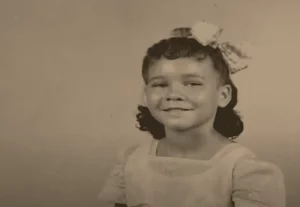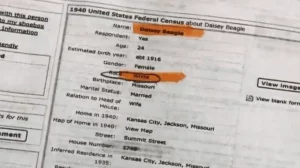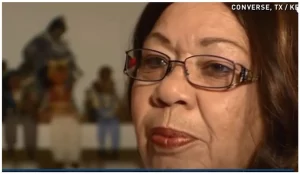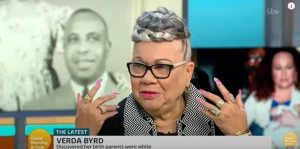When a 70-year-old adoptee decided to find out more about her biological family, she was shocked by what she discovered. Her adoptive parents had kept an unbelievable secret about her identity.In 1943, Verda Byrd was adopted by people who wanted to be her parents, leaving her pleased to finally have a family and a loving home. However, the people who raised her never revealed the truth about her birth mother and father.
They took the secret to the grave with them, but Byrd did some digging of her own and stumbled upon an unexpected piece of information. She grew up in a black family and had no reason to doubt that she was African American—until 2013.

The Overwhelming Discovery and Byrd’s Acceptance of Her Identity
Byrd found out that her biological parents were white. She was stunned and initially struggled to come to terms with this new part of her identity. The elderly woman mentioned how overwhelmed she was and battled with the attempt to erase seven decades of her life and instantly accept what the papers said, with her revealing:
“It’s like 70 years pass by, and in a blink of an eye, you’re a different race.”
Byrd confessed how she doesn’t regret having the black life she was adopted into and more than anything, she is grateful for the parents who raised her. She has also accepted her new racial identity.

While she still identifies as a “beautiful black woman,” she has started ticking two boxes, black and white. Byrd aptly summarized why she chose to do this when she said:
“I was born white, but my whole life, I’ve lived the black experience.”
No Questions about Byrd’s Appearance
Byrd’s looks never caused too much confusion growing up, nor did it spur on questions about her race. People attributed her lighter skin to her mother, and her curly hair also matched her presumed black race.

The elderly woman noted this about her upbringing in an African-American household:
“My family didn’t experience much discrimination because my mom and I were lighter-skinned, and there weren’t a lot of African Americans in Newton [Massachusetts].”
Sharing some more about her background, she revealed that growing up, her mother would take her to a black hairdresser. Like any typical African-American, she ate soul food and participated in Martin Luther King marches.
Byrd revealed that her life was “completely immersed” in black culture because “for all intents and purposes,” she was black. The now elderly woman even married into the race she always believed she fell under.
Byrd Discovered More than She Expected
Byrd married a black man, Trancle, and went on with her life without questioning her heritage. During an April 2019 “Good Morning Britain” interview, the couple revealed that they lived in different apartment complexes for years, with Trancle thinking she was white.However, she eventually convinced him she was black. She only felt ready to learn more about her family history in October 2013. With the assistance of a researcher, she tracked down her biological history and adoption records.
She spent days reading the findings repeatedly, stunned that she not only had ten siblings but was born white. Trancle’s wife found out much more than she expected but has made the most out of the unique situation.

Byrd says she now identifies as whatever people want her to be, as it doesn’t matter to her because she is comfortable with herself. Her husband laughed while confessing she now has a better attitude since finding out the truth about her heritage.
Another Woman Uncovers the Truth about Her Heritage
Byrd wasn’t the only woman who found out the shocking truth about her true racial identity. Shortly before she turned 50, Rhonda Fils-Aimé discovered that she was not white. After using an at-home DNA testing kit in 2017, she found out that she was part black.
Fils-Aimé was shocked but immediately pursued the leads, which led to her biological father, a Haitian man. She was grateful for the opportunity to connect with him and excited to make up for the lost time.
Both Fils-Aimé and Byrd made startling discoveries about their racial identities. While it wasn’t always easy to make sense of the past, they can move forward with a better understanding of themselves and their heritage.


